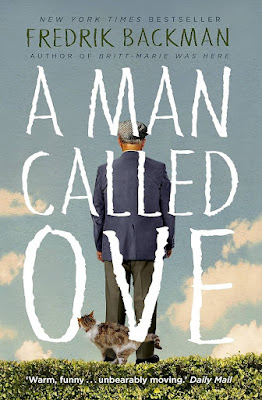The Godfather
 |
| courtesy Amazon.in |
In 1945, New York was ruled not by the government alone. Behind the law loomed the Italian mafioso, its influence over the city far beyond anybody's imagination. From the police to senators to judges, the five crime families of New York had them on their payroll to help their empires flourish. But one family stood apart from the rest and demanded respect from the reluctant families- the Family Corleone.
Don Corleone is getting old, and he has a dream of legitimising his illegal business to settle down with the immense wealth he gained from his years of careful manipulation. But who would lead the family into the future of his dreams- his hotheaded elder son Sonny, the diminutive Fredo or the all-American Michael? It doesn't help that the Family Corleone refuses to indulge in drug-dealing; it riles the other families in dire need of Don Corleone's political connections. While the Don plans to retire, the others make plans to end the Corleones' monopoly- by assassinations, betrayal and a drug lord.
The Godfather's plot reminds me of a gripping game of chess where a wrong move could cost you your life, giving the message that the winner is the strategist, not the strongman. While this truth is evident from the fate that befalls the eldest Corleone son, the prodigal son Michael combines strategy and flawless execution to develop a lethal formula to decimate foes and dissenters.
Ivy League alumnus and decorated war hero Michael Corleone is a puzzle. After striving to be as American as possible, he quickly becomes the dutiful Italian son ready to wreak vengeance on his father's assailants. How does a virtual stranger to the Corleone family become so devoted to the world he sought to shun? If the story had gone on a slightly different tangent, I believe that Michael would have never chosen to turn his back on his dream of a mafia-free life. To experience fully the depth of the change Michael goes through, I suggest watching Francis Ford Coppola's jaw-dropping directorial, The Godfather trilogy. The intensely dramatic series feature Al Pacino, Marlon Brando and Diane Keaton in what might be one of the best cult classics ever.
Regardless of the god-like status that Mario Puzo's mafioso world enjoys, the fact that it also reeked of male ego and condescending patriarchy disappointed me. Scores of readers, including me, wished that the women were portrayed in a better light, not just as helpless wives at their husbands' mercy. Was it necessary to beat up, neglect or abuse every married woman? What does this physical display of power even prove? This all-pervading theme of toxic masculinity is perhaps the defining feature of The Godfather.
While the book is an action-packed epic from start to finish, its potential to romanticise crime is unsettling. For those who are sceptical of this notion, see for yourself the effects of on-screen narcotic abuse and dangerous driving on viewers. This alarming trend is despite copious disclaimers appearing in those moments. I hope you won't get carried away by the heady thrill of a world so alien to our lives. Seriously, crime fiction is best suited to paper and not an inch further.



Comments
Post a Comment